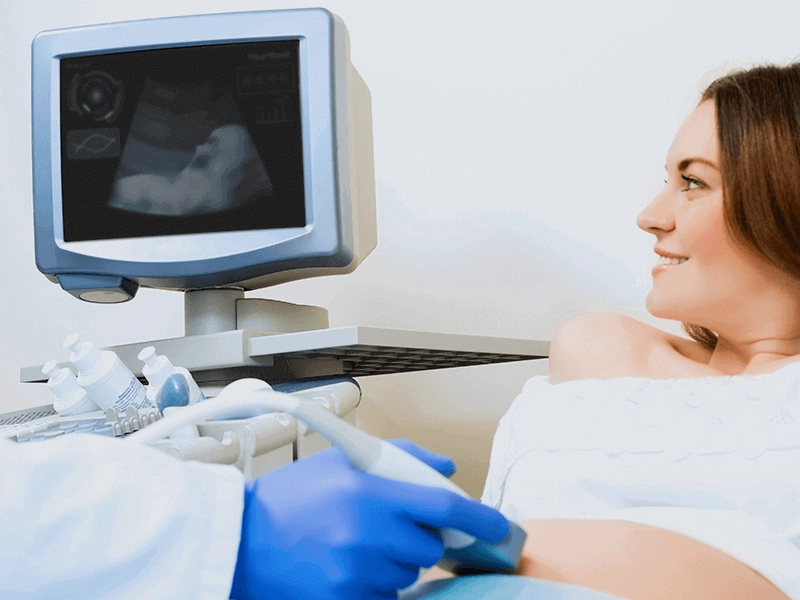Home/Wellness Zone/Sakra Blogs
6th Mar, 2017

Fetal medicine and its role in pregnancy
Fetal medicine is a specialty that provides a holistic approach towards fetal care and works in sync with Obstetrics and Gynecology to ensure a safe and healthy delivery. All kinds of specialized diagnostic and fetal screening tests necessary for monitoring the developing fetus are performed to ensure timely prenatal diagnosis and thus improved prognosis before and after birth.
What to expect at your Appointment with a Fetal Medicine specialist?
Before your appointment
1. You should always try and go assisted by a family member for the appointment. It is also suggested to avoid taking small children along.
2. For Early Pregnancy Scan - you need to have a full bladder, but not so full that you are uncomfortable
3. For all other pregnancy scans: you do not need to have a full bladder for the scan.
4. Always carry your maternity notes, scan reports, and prescriptions with you.
At your appointment:
During the Scan
1. You will have to lie on your back in the scan room with your tummy uncovered.
2. The lights in the room will be dim for a clear view of the screen.
3. A gel will be spread on your tummy so that a hand-held probe can be easily moved backwards and forwards over it. The probe sends sound waves through your tummy. The sound waves bounce back off the baby and are translated into an image on the screen.
After your scan
1. The results will be explained to you and a scan report with details of the examination will be released in a few minutes.
2. Your next scan will be scheduled accordingly.
What is the need of different ultrasound scans during pregnancy?
There are several reasons why it is essential to take different ultrasound scans for women between 11 to 14 weeks of pregnancy.
1. To see the baby’s heart beating
2. Check whether there is just one baby
3. Confirm how many weeks pregnant you are by measuring the baby
4. Check for any major abnormalities
5. To do screening for Down’s Syndrome
What are the different types of Scans?
Early pregnancy scan (5 to 11 weeks)
This scan is done to locate the pregnancy, check the baby’s heart beat and diagnose multiple pregnancies.
Nuchal translucency scan (11 to 13 weeks + 6 days)
This scan is done to assess the risk of chromosomal problems and rule out fetal anomalies in the baby.
Early Anomaly Scan (16 to 17 weeks)
Routine Anomaly scan (18 to 20 weeks)
This scan helps to assess the baby’s growth, basic echocardiography, rule out anomalies, and check the placenta.
Fetal Echo (18 to 24 weeks)
Fetal echo is a complete study of the baby’s heart.
Growth scans (24 weeks onwards)
These scans can be done according to the need any time after 24 weeks and are mainly done to assess baby’s growth, the amniotic fluid around the baby and to assess the blood supply to the baby (Doppler study).
What are the tests done under fetal medicine?
SCREENING BLOOD TESTS
1. Double marker (10 to 13 weeks + 6 days)
2. NIPT (Non Invasive Prenatal Testing) (10 weeks onwards)
3. Quadruple test (16 to 21 weeks)
DIAGNOSTIC TESTS
CVS (11 to 14 weeks)
CVS is a test carried out during pregnancy, which involves removing tissue from the placenta to detect chromosomal abnormalities such as Down syndrome and some other genetic conditions, such as sickle cell disease or thalassemia major, if your doctor has asked for you to be tested for these.
Amniocentesis (15 weeks onwards)
Amniocentesis is a test carried out during pregnancy which involves using a fine needle to remove a small amount of the amniotic fluid around your unborn baby. Amniocentesis is used to detect chromosomal abnormalities such as Down syndrome. It can also detect certain other genetic conditions, and fetal infections.
OTHERS
1. Amnio Drainage/ Reduction
2. FBS (2nd Trimester onwards)
Enquire Now
